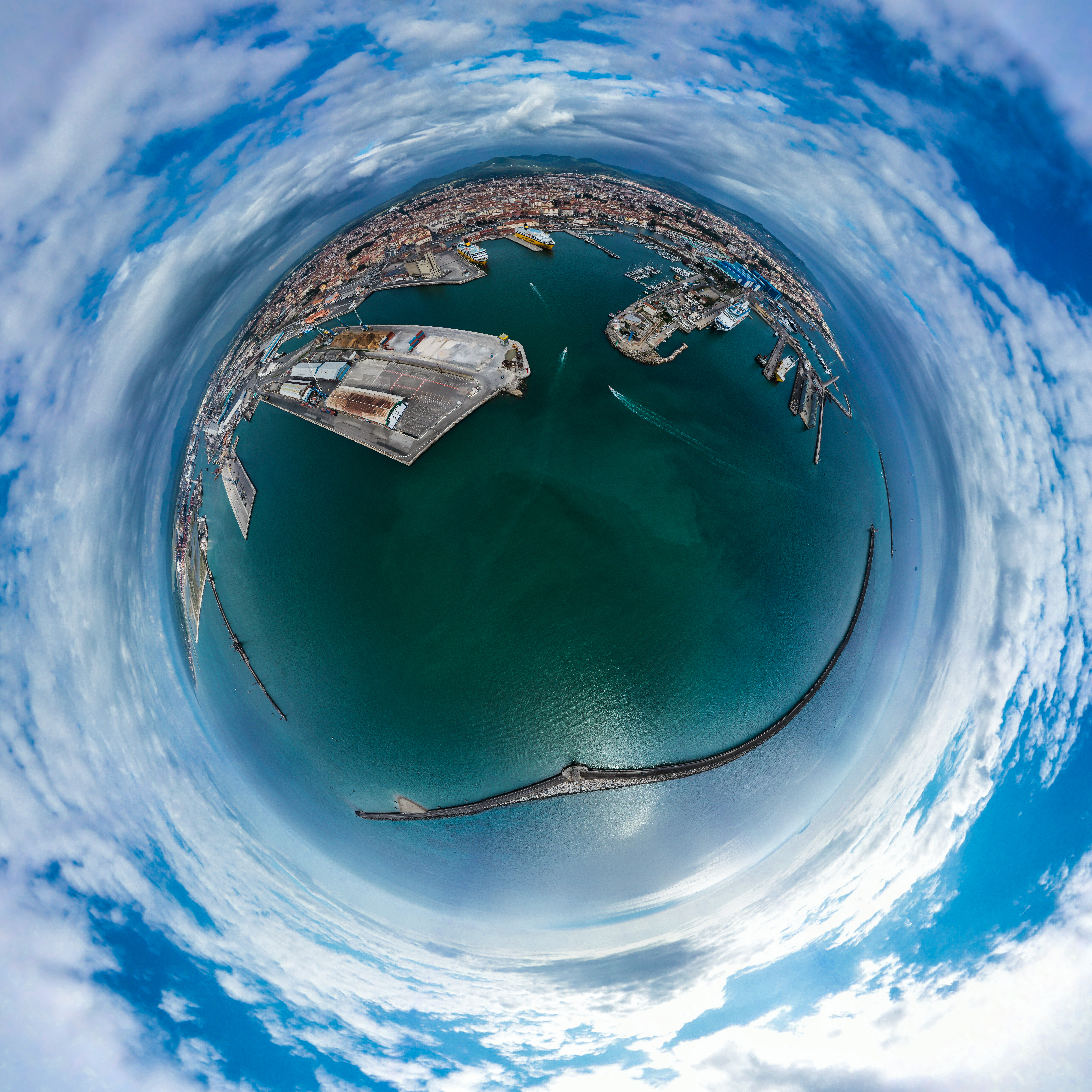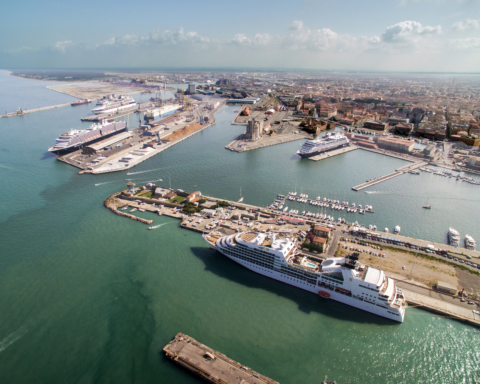An increasingly sustainable Port Network Authority, geared towards combating environmental pollution, energy efficiency, digitalization and gender equality.
This is what emerges from the Environmental Sustainability Report presented today at the Management Committee meeting and adopted by the Port Network Authority by presidential decree. It’s a tool for sharing, drawn up in the form of a non-financial balance sheet – according to the parameters of the United Nations 2030 Agenda – and devised in 2021 thanks to the commitment of the Authority’s inhouse resources and the contribution of a variety of people, companies, associations, and institutions.
The report highlights the soundness of the North Tyrrhenian Port Network, which consists of six ports, a turnover of 42 million tonnes of goods and represents the driving -force for local development, contributing 1.3% to the region’s gross domestic product and employing 20,624 full-time workers.
This document, the first of its kind to be produced by the Port Network Authority, first of all shows the extent of the economic spin-offs that the Network’s ports have throughout Italy. Livorno, Piombino, and the ports of Elba and Capraia, directly employee 9,735 workers and generate an added value of 887 million euros, with 75% of the total affecting Livorno and the remaining 25% is distributed among just over four municipalities. The Port Network indirectly generates 11,241 jobs and an added value of 812 million euros and a further 16,675 jobs in induced employment.
Overall, therefore, the total number of jobs directly, indirectly and induced by the presence of production and service activities connected with the North Tyrrhenian sea ports is 37,652, generating an added value of 2.8 billion euros
These significant figures give a measure of the importance and relevance of the activities carried out by the Port Network Authority.An organization that has long been engaged in a massive infrastructure planning, design and development project, quantifiable at 1.2 billion euros invested over the three-year 2022-2024 period. An institution that, on the organizational sustainability front, has taken vigorous action to prevent corruption and to make administrative management as transparent as possible.
A Governance that has tripled the number of training hours over the last three years, with a 294% increase between 2019 and 2020 and 157% between 2020 and 2021. As of 2019, it achieved important goals in terms of gender equality, taking on 28 people, 40% of whom female. Currently, female employees make up 44.52% of the Port Network Authority’s workforce, while at senior management level, the percentage is up to 50%.
On the digitalization front, many results have been achieved by the Network Authority in terms of both the dematerialization of internal procedures and the harmonization of the Authority’s information systems. Managing paperless processes, equipping itself with secure, resilient infrastructures, and appropriately integrating existing systems are specific objectives that the Port Authority has set itself in order to achieve high levels of efficiency and competitiveness, reduce the negative impacts linked to port congestion and improve the safety of the entire port system
In terms of environmental sustainability, the Port Authority has developed an articulated plan, already outlined in the Energy and Environmental Planning Document (DEASP) and aimed at facilitating infrastructure energy efficiency, the implementation of power generation plants from renewable sources, and the development of hydrogen production and its use.
A total of 14 projects for the total abatement of 4600 tonnes of CO2 and the production of approximately 3 MWp of electricity have been accepted for funding by the Ministry of Ecological Transition. Interventions amounting to 33 million euros will be added to those for the electrification of quays, for which the Ministry of Sustainable Infrastructure and Mobility has reserved an allocation of over 77 million euros.
Regarding energy resource management, the report highlights how, over the years, the Port Network Authority has launched, pursued and strengthened, initiatives aimed at improving energy efficiency and promoting the use of renewable energy in the port, reaching 100% of the targets set in the two-year 2020-2021 period. From 2019 to date, the Authority’s overall electricity consumption, including both its head offices and its external areas, has decreased by 5%.
“The Sustainability Report is a document of strategic importance drawn up on the basis of precise guidelines that the Minister for Infrastructure and Sustainable Mobility, Enrico Giovannini, has provided for all the Port Network Authorities,” said Port Network Authority President Luciano Guerrieri, emphasising that he had adhered to this project with conviction and enthusiasm.
“The report and the results that have been achieved are the fruit of not only the intense, professional dedication of all the authority’s staff, but also of a constant and crystal-clear dialogue with the port cluster,” he added.
“For us, this is not a token or mere greenwashing initiative: with this budget, we aim to pursue a very precise line of action that will have to be consolidated in the years to come and with which we intend to emphasize how determinedly this Authority works for sustainable development and intergenerational justice.”
Translation by Giles Foster




